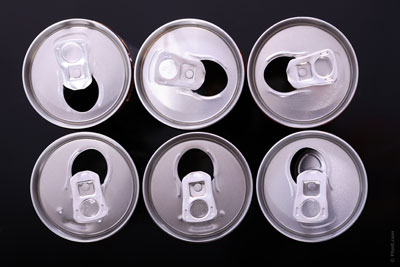The chemicals used while manufacturing tin cans can get into food, and from there – into the human body.

The journal of the American Medical Association informs about the tests conducted by the scientists from Harvard School of Public Health on 75 volunteers. They have shown that the bisphenol A component (technical diphenylolpropane) is found in large amounts in the urine of the volunteers after eating canned soup.
Bisphenol A is still used in the manufacturing of tin cans to protect them from corrosion and help keep the food fresh longer.
Jenny Carwile, the leading author of the study, comments that they know that drinking beverages that have been stored in certain types of plastic packaging could increase the amount of bisphenol A in the body. And this study suggests that canned food can cause even greater concern, taking into account its wide distribution.
Last year, the European Commission banned the use of this substance in the manufacturing of bottles for babies.










